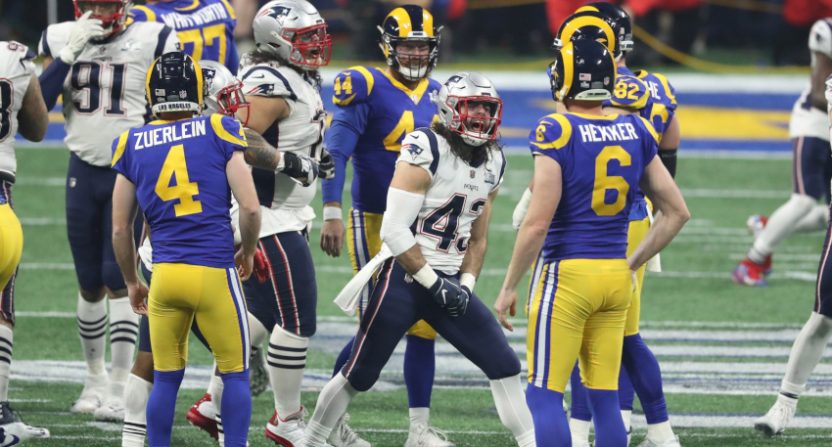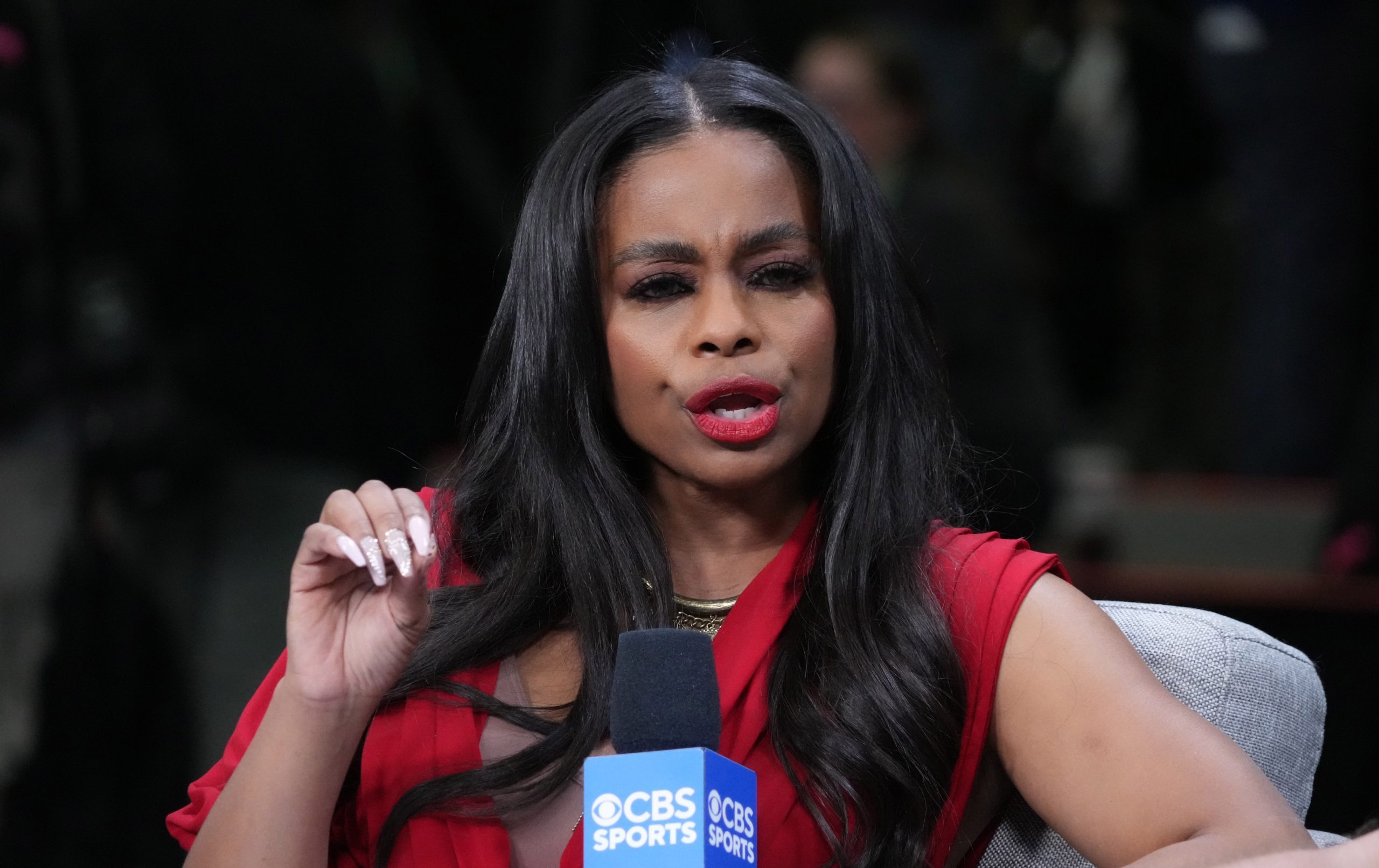The biggest NFL trade this week might not be the Giants sending Odell Beckham to Cleveland, at least not from a dollars-and-cents perspective. As per Andrew Marchand of The New York Post, CBS has agreed to swap the 2022 Super Bowl (LVI, played in Hollywood Park, California) they were set to broadcast to NBC for the 2021 edition (LV, played in Tampa). Marchand writes that there’s no exchange of money involved, because both sides view this move as desirable for them:
There is no compensation because it benefits both networks, sources said.
The move is being made because NBC would like to pair its Super Bowl with the 2022 Olympics. Having the mega-events back-to-back in one year makes selling advertising easier, as NBC will be able to make combo deals instead of competing against another network for many of the same sponsors.
For CBS, it now will avoid having its next Super Bowl going against the Olympics. If the switcheroo hadn’t happened, then the Super Bowl on Feb. 6, 2022, would be matched up against the Olympics that are set to begin Feb. 4 of that year from Beijing.
That idea of pairing the Super Bowl and the Olympics has worked out well in the past; NBC sold plenty of pairing ads in 2018, bringing in an estimated $1.4 billion in revenue between the two events. This can be a bit difficult on the broadcasting side, as the network needs to have several key people on the ground for the Olympics (in Beijing in 2022) who would normally be doing Super Bowl coverage; for example, this led to Mike Tirico skipping the Super Bowl in 2018. And that was for an Olympics that started later in the week after the Super Bowl, not ahead of it, so the hurdles might be even higher this time. But the decision to make this kind of swap suggests NBC thinks the tradeoffs on the ad side are well worth a few production challenges.
But what’s in this for CBS? Well, as Brian Steinberg of Variety notes, this also means that CBS now gets the Super Bowl in a year where they’re set to broadcast the NCAA Tournament championship game, giving them pairing opportunities as well. And it means that they and NBC aren’t going head-to-head, trying to lure advertisers to spend big money on their particular event. That could have led to competition that brought down Super Bowl ad rates, and that’s certainly something the NFL and its broadcast partners don’t want.
The latest
- Exclusive: Famed travel baseball coach Nelson ‘Coach Nelly’ Gonzalez talks partnering with Perfect Game for podcast
- Jason Kelce hire solidifies ‘Monday Night Football’ as ESPN’s premier program
- Paul Bissonnette and Anson Carter on covering former NHL on TNT colleague Rick Tocchet: ‘It’s been easy to pump his tires.’
- Exclusive: Michael Davies is stepping back from regular Men in Blazers appearances
So this feels like a reasonable move for both networks and for the NFL, but it’s still interesting to see that. The Super Bowl rotation has usually been more static; since ABC’s exit with the 2006 Super Bowl, it’s always been CBS, Fox, NBC, which led to CBS (2010) and Fox (2014) having Super Bowls in Winter Olympic years. This suggests that approach is changing, and that the networks with NFL rights may be more willing to work with each other on mutually-beneficial scheduling changes. (And that might also come into play with some of the discussion of “shaking up” afternoon broadcast packages.)
This isn’t necessarily great for those looking to advertise in 2022, as they now can’t play CBS’ Super Bowl off against NBC’s Olympics (however, there might be some value for bigger brands in particular with Super Bowl + Olympics packages) in an effort to get the best rate, but it seems to make sense for the networks. And we’ll see if there are more moves like this in the years to come. If NBC does wind up retaining NFL rights after the 2022 season, maybe they’ll be able to set it up so that their Super Bowls and Winter Olympics regularly come together.






